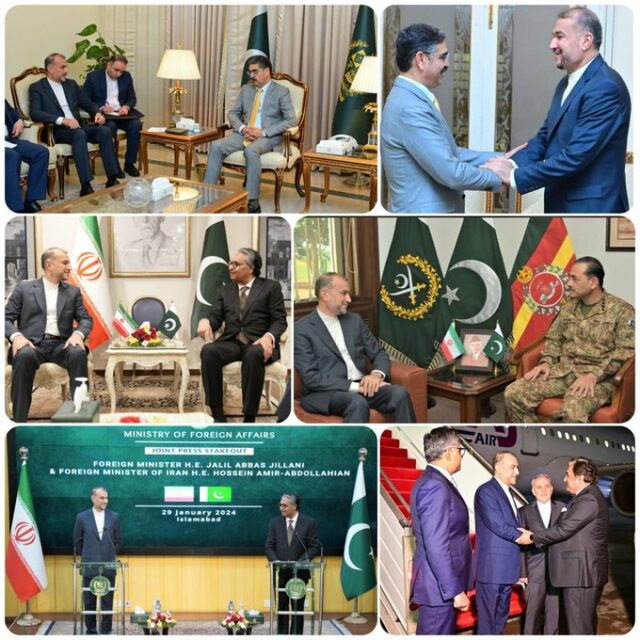Less than a fortnight after Iran and Pakistan were at each other’s throats, the war cry has swiftly transitioned into an unprecedented overture of kinship. To coordinate better and respond to ‘common threats’, they will now deploy military liaison officers in each other’s country.
The move comes after Iranian Foreign Minister Hossein Amir Abdollahian landed on Pakistani soil and met the most powerful man in the country: Army Chief General Syed Asim Munir.
On January 16, Iranian missiles targeted hideouts of the terrorist group Jaish-al-Adl in Pakistan. Two days later, Pakistan retaliated in kind, striking what it called Baloch terrorist groups in the Sistan-Balochistan province of Iran. At least nine people were reported dead.
Tempers in both countries ran aboil but de-escalation has been equally swift. Ambassadors of both countries returned to their respective capitals and then came an invite from the Pakistani side for the Iranian foreign minister, which he accepted.
‘Terrorism Common Threat’
Gen Munir made all the right noises, according to the Inter-Services Public Relations (ISPR), the Pakistani military’s media wing. “Each state’s sovereignty and territorial integrity are sacrosanct and inviolable.” (That certainly doesn’t include India). Both sides acknowledged terrorism as a common threat that needed more coordination and sharing of intelligence to be tackled. And they discovered that “Pakistan and Iran are fraternal neighbours, and the destinies of both nations are intertwined.”
‘Third Countries Behind Terrorists’
Iran too tempered its tone and deflected the terror blame elsewhere.
At a joint press conference with his Pakistani counterpart Jalil Abbas Jilani, Abdollahian claimed it was beyond doubt that terrorists operating in the border areas of Pakistan and Iran were “led and supported by third countries”. He didn’t name any country though.
This month’s tit-for-tat strikes involving Iran and Pakistan comes at a time when West Asia is sitting on a powder keg amid the Israeli offensive in Gaza and Iran and its proxies, including Hezbollah in Lebanon and the Houthi rebels in Yemen going on the offensive. Ripples have been felt in the Red Sea and merchant ships have been forced to take a circuitous route
Related Content:
















